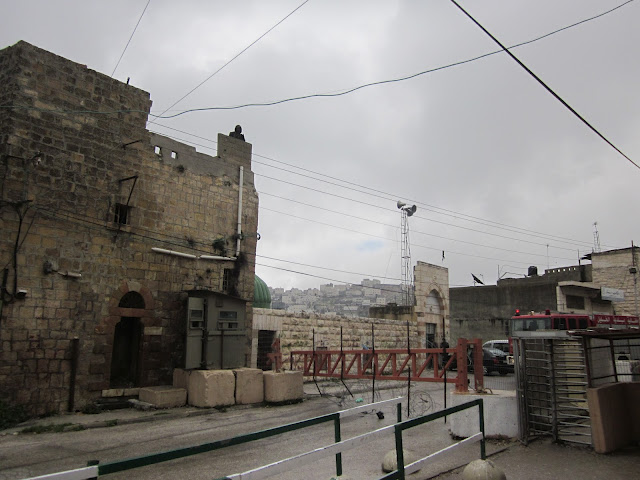Tag: Golani Brigade
-
Golani Brigade rampages through the Pharmacy District of Al Khalil
by Rune 19 March 2012 | International Solidarity Movement, West Bank The Pharmacy District, once a prosperous part of Al Khalil (Hebron) centered around the now closed pharmacy, is now subjected to the violence and harassment of the Israeli military which continues to abuse residents of this historical area. Monday night International Solidarity Movement activists…
-
Tel Rumeida: As locals march for rights, Israel sprays funeral procession and injures journalist
by Aaron and Silvia 26 February 2012 | International Solidarity Movement, West Bank The divided city of Al Khalil (Hebron) was transformed into a war zone this Friday, as thousands of Palestinian, Israeli, and international activists attempted to peacefully reopen the segregated Shuhada Street and were violently attacked by the Israeli military. Soldiers and riot…
-
Thousands march to end settlements in Hebron
24 February 2012 | Youth Against Settlements The “Youth Against Settlements” movement marked the 18 year anniversary of the Ibrahimi Mosque Massacre with a peaceful march, as part of Apartheid Week in Palestine, demonstrating through the streets of Hebron, violently broken up by Israeli forces. Eight thousand of Palestinians from across the West Bank, joined…


